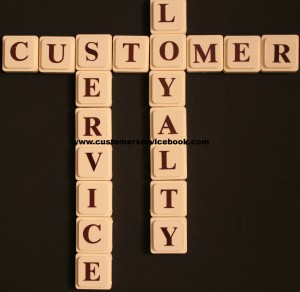Impact of the Recession on Customer Loyalty
Many business owners and managers will tell you that they are struggling to maintain market share and service levels to guarantee customer loyalty. This has been a trend for a number of years and particularly became difficult once the recent economic downturn kicked into full swing. To off-set the trend, companies are striving to provide excellent customer service, create moments of truth that make the customer feel special and encouraging customer service representatives and employees at all levels to exceed customer expectations.
A big challenge is that companies realized that in addition to losing customers, they were also losing profits as many middle class and some higher-income customers retrenched on spending. To offset their reduced disposable capital, consumers have changed their spending habits, stopped eating out and traveling as much, limited their entertainment budget, shopped less for non-essential items, and cut services that they considered a luxury (e.g. grass, pool, and pest control services) and started handling those functions personally. They also started doing more comparative shopping, spent more time bargain hunting, attended yard sales and consignment shops, clipped more coupons, and in many instances traded down to less expensive store items or those that were not in the “status symbol” or name brand categories.
The result of all these cultural and societal changes has been that now that customers are accustomed to the “new economic normal.” They realize that they can actually live well and be comfortable at a lower spending level and using lower quality products. They even realize that in many instances they actually happy with their new lifestyle and spending habits. As a result, even though the economy has started a slow upward movement, consumers are now remembering the economic pain they suffered and are stashing away as much as they can in the event the recession comes back.
What all this means for retail businesses, service providers and product manufacturers are that they must retool their marketing and production mentality. They are reducing on-hand inventories, minimizing staff hiring and using part-time employees or outsourcing services and re-examining the way they deliver customer service in a changing world. In particular, they are changing the manner in which they show added value to their customers in an effort to gain and retain new ones.
The changing business environment has resulted in a winning proposition for many consumers who now feel that they are in a power position related to making purchases. This is especially true in instances of major buying decisions (e.g. cars, houses, property, recreational vehicles, and other higher-end items). Many realtors and dealers have experienced a large inventory surplus due to a slowdown in purchases and tightened lending policies from financial institutions. This has created a buyers market.
By doing adequate research and coming to the sales environment with knowledge of manufacturing costs, competitive pricing, and product and service details, the consumer is now often in a position to negotiate strongly and get pricing that is not only fair but also better than they could have gotten in the past. Retailers in nearly every type of product line and business are willing to negotiate and offer discounted prices when pressured by the customer to do so. They do this because they realize that their competitors will discount if they do not and the customer is likely to walk away, if not satisfied with an offer they receive. In addition, with a global economy and access to products from around the world only a mouse click away, companies realize that they must deal or die.

From a customer service perspective, it is imperative that managers develop a customer-centric mindset and that customer service representatives and everyone else in the organization adopt a can-do/must-do attitude when it comes to communicating effectively and working with customers. They must provide the best customer service possible in any instance where there is a of customer-provider interaction. Only through such initiatives will organizations be able to show customers that they offer the best value, care about their wants, needs, and expectations, and are willing to put forth the effort to help achieve customer and brand loyalty.
About Robert W. Lucas
Bob Lucas has been a trainer, presenter, customer service expert, and adult educator for over four decades. He has written hundreds of articles on training, writing, self-publishing, and workplace learning skills and issues. He is also an award-winning author who has written thirty-seven books on topics such as, writing, relationships, customer service, brain-based learning, and creative training strategies, interpersonal communication, diversity, and supervisory skills. Additionally, he has contributed articles, chapters, and activities to eighteen compilation books. Bob retired from the U.S. Marine Corps in 1991 after twenty-two years of active and reserve service.
Make Money Writing Books: Proven Profit Making Strategies for Authors by Robert W. Lucas at Amazon.com.
The key to successfully making money as an author and/or self-publisher is to brand yourself and your company and to make yourself and your book(s) a household name. Part of this is face-to-face interaction with people at trade shows, library events, book readings, book store signings, blogging or guest blogging on a topic related to their book(s). Another strategy involves writing articles and other materials that show up online and are found when people search for a given topic related to a topic about which the author has written.
If you need help building an author platform, branding yourself and your book(s) or generating recognition for what you do, Make Money Writing Books will help. Bob’s popular book addresses a multitude of ideas and strategies that you can use to help sell more books and create residual and passive income streams. The tips outlined in the book are focused to help authors but apply to virtually any professional trying to increase personal and product recognition and visibility.


